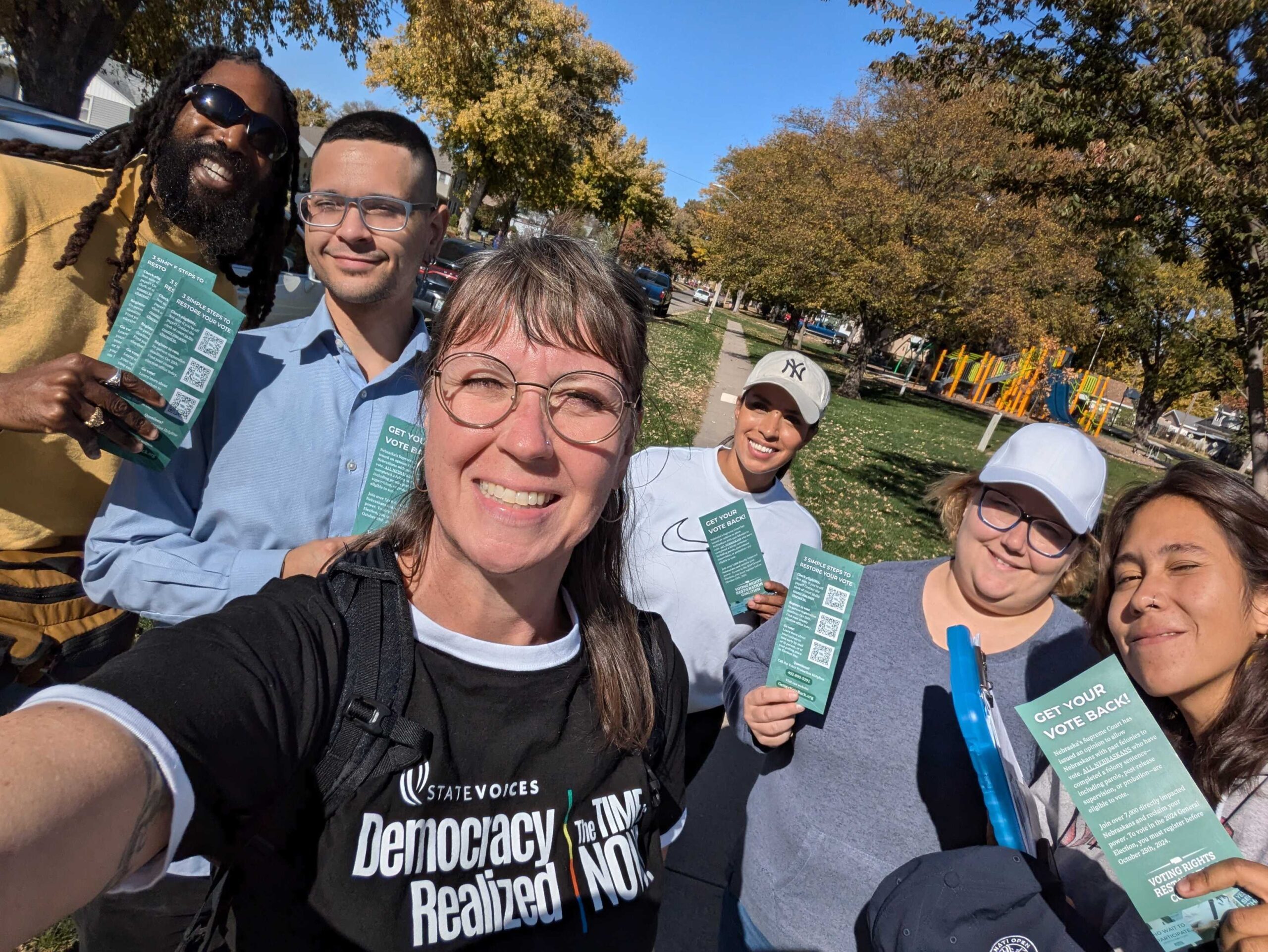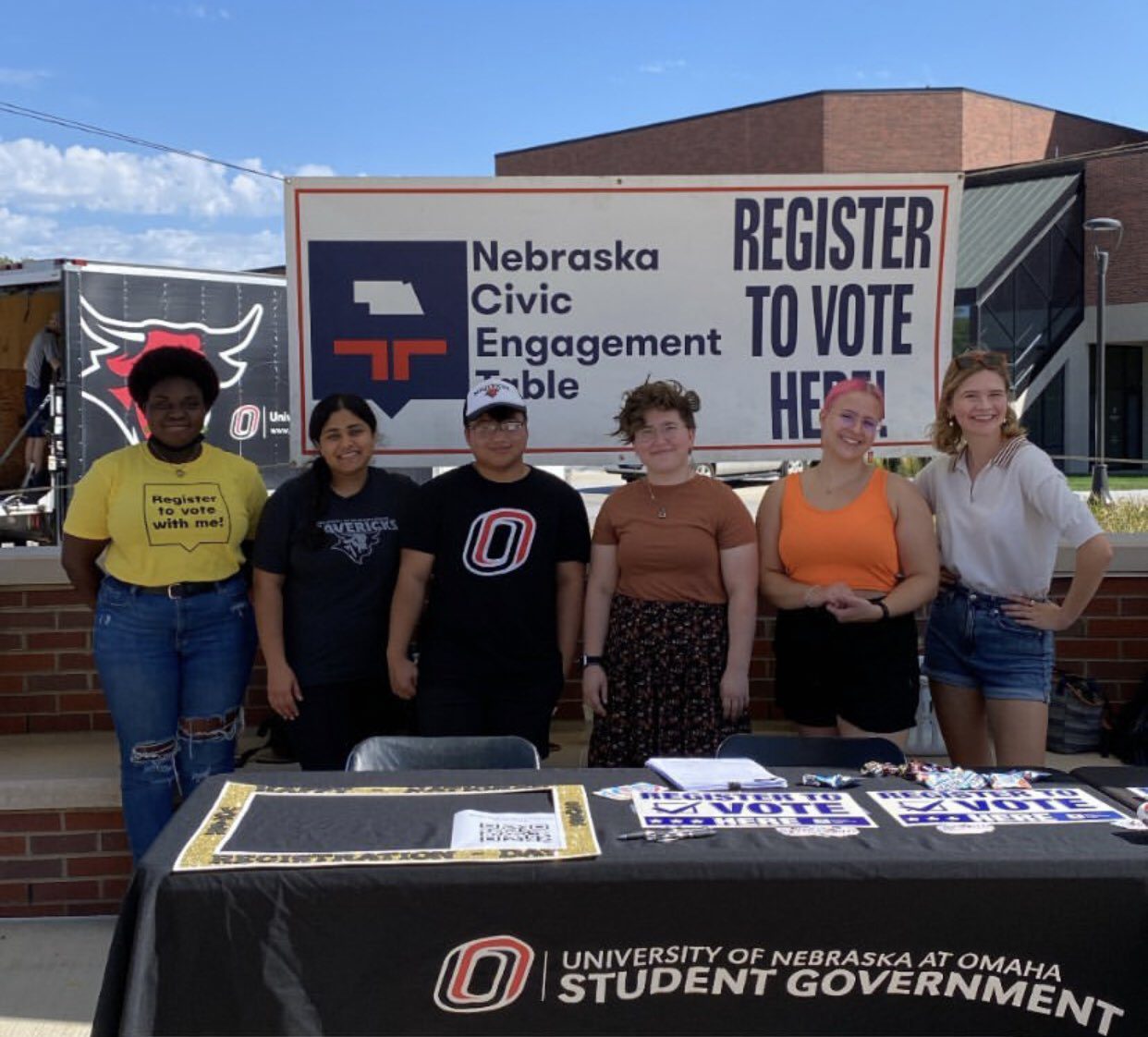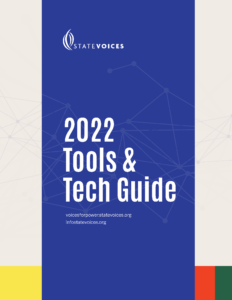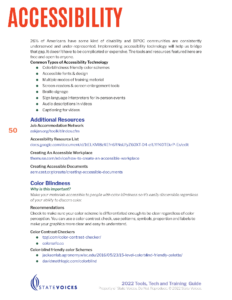Make sure you make a plan to vote this year using our new vote guide tool!
When we envision power building and movements, scenes of voters at the polls, organizers knocking on neighborhood doors, and public protests filling the streets come to mind for many.
Behind the scenes to those moments of visible power and unity is the major role technology plays in our freedom fighting.
Across the globe, 3.6 billion people are living with no connection to the internet and this lack of access is directly linked to disparities in healthcare, economic opportunities, and education. In the US, the digital divide disproportionately excludes Black, Indigenous, Latinx, and other people of color, which are the same groups that technology has been used against as a means of oppression.
By knocking down the barriers of expense and availability, and investing in BIPOC communities with tools and training, we can use technology to strengthen our movement. Here are five reasons why democratizing tech matters:

1. Data is more accurate when collected and driven by communities
Historically marginalized groups, especially Black people, Indigenous people, and other people of color, have been systemically excluded from data collection and the tools that institutions and academics have used to analyze and organize data. Expanding access to technology and tools ensures marginalized communities have the resources to generate community-driven data. Our movement is stronger when we can build accurate and responsive campaigns that affirm and validate the experience of folks that are directly impacted.
2. Better data and tools in the hands of BIPOC communities result in better organizing
State Voices recognizes and believes that marginalized communities and people closest to the problems are the folks closest to the solutions. The folks within communities have built trusted relationships that relay messages, coordinate resources, and build political power. Expanding access to data and the latest technology and tools to ensure BIPOC and marginalized community members have the resources they need to coordinate programs, share information, and mobilize their neighbors and friends supports more decentralized power-building across communities that can better respond to the needs at the local and state level. Together, we can build a healthy democracy where we can all live and thrive starting from the ground up.

3. BIPOC and marginalized communities can access more opportunities with quality and accessible tech and tools training
Investing in democratizing technology in tools is an investment in the leaders of today, tomorrow, and our future democracy we’re building to ensure every person is heard and their right to live freely and with dignity is protected. Our movement technology and tools run on skills and data accessible and transferable across various skills and experiences, ensuring flexibility for folks transitioning into new roles. When we build data infrastructures and share skills, we create lasting movements and knowledge for generations to come.
State Voices’ commitment to investing in the leadership of BIPOC leaders is reflected in our programming and trainings, including our Data Certification Program, which prioritizes training BIPOC cohorts in various tools and data used in our movement.
4. Stronger movements can make governments and institutions more accountable
As our campaigns and communities transform with equitable access to technology and tools, our political power can shift culture and influence institutions to push for community-driven solutions.
Our values in anti-oppression, racial, gender, and disability justice and centering the experiences, voices, and votes of marginalized people are at the core of democratizing technology and tools. Civic technology and tools are a part of the catalysts for our people-powered movement.
5. Bridge connection gaps across communities and solutions
When we democratize tech, we get closer to realizing our dream of a true multiracial democracy. This happens when we have the tools, infrastructure, and skilled community members working together to create solutions, share information, and build authentic relationships across our communities. Democratizing technology is a necessary step in our fight for a liberated democracy to ensure everyone has the opportunity to be heard, represented, and engaged in our democracy.
Democratizing tech means ensuring that tools are available, useful, and accessible to all and supporting those with historically limited access, including people with lower incomes, disabilities, marginalized neurodiversity, and language barriers.
At State Voices, one of the ways we champion this effort is through the publication of our annual Tools and Tech Guide. Our 2022 edition offers insights based on multiyear research into the latest tools and tech vendors that might benefit your organization.
Categories: Civic Tech and Innovation





